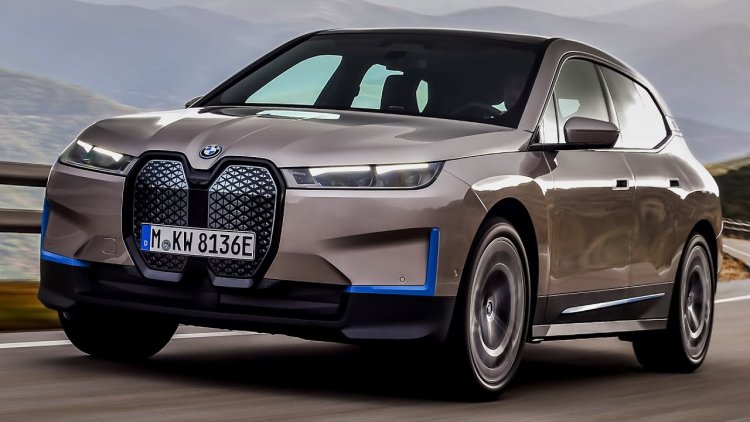Why 2025 Is a Big Year for BMW’s Green Innovation
Discover why 2025 marks a major shift for BMW’s eco-friendly future, with new electric models, tech, and sustainable production strategies

In a world where sustainability is becoming the defining factor in automotive advancement, BMW continues to lead the charge with its cutting-edge innovations. The German automaker has never been one to shy away from progress, and in 2025, BMW is set to make one of its boldest moves yet. With a renewed focus on green technology, eco-conscious production, and all-electric mobility, 2025 is shaping up to be a game-changing year not only for BMW, but for the entire automotive industry.
The Vision Behind BMW’s Green Strategy
BMW has long championed the fusion of luxury with responsibility, but 2025 marks a deeper commitment to environmental stewardship. Central to this vision is a plan to dramatically reduce carbon emissions across the vehicle lifecycle—from raw material sourcing to end-of-life recycling. BMW’s long-term goal is to achieve climate neutrality by 2050, and 2025 represents a critical waypoint on this path.
In line with this vision, Electric BMW Vehicles 2025 will reflect significant changes in how the brand approaches sustainability. These vehicles will go beyond just running on electric power—they will be manufactured using cleaner energy sources, incorporate recycled materials, and be designed for greater efficiency at every level. BMW's eco-forward blueprint isn't just about meeting regulations—it's about setting new standards for the luxury segment.
Neue Klasse Platform: A Game-Changer
Much of BMW’s future-focused transformation hinges on the introduction of its highly anticipated “Neue Klasse” platform in 2025. This next-generation vehicle architecture represents a complete rethinking of what an electric BMW can be. Built from the ground up with electrification and digitalization in mind, Neue Klasse will serve as the foundation for a new breed of BMW vehicles.
The Electric BMW Vehicles 2025 lineup built on this platform is expected to deliver impressive improvements in battery range, charging speed, and overall vehicle intelligence. Drivers can expect real-time performance feedback, enhanced self-learning driving assistance, and seamless digital experiences—all wrapped in sleek, modern designs. It’s not just about going electric—it’s about elevating the entire driving experience.
Upcoming Electric Models in 2025
BMW has been steadily growing its electric offerings, and 2025 will mark the arrival of several new EVs that promise to impress. While details are still emerging, the next wave of electric models will likely include redesigned versions of popular favorites as well as entirely new entries.
Among the highlights may be a more efficient iX3, a futuristic take on the i3, and perhaps a brand-new sedan tailored specifically for the Neue Klasse platform. What sets these upcoming models apart is their integration of advanced software systems, aerodynamic body structures, and interiors crafted with sustainability in mind. The focus is clear: delivering performance and luxury without compromising the planet.
Sustainability Beyond the Vehicle
BMW’s green commitment doesn’t stop at the garage. The company is taking serious steps to improve sustainability across its entire manufacturing and logistics process. By 2025, all of BMW’s European plants are expected to run on renewable energy, with similar efforts expanding globally.
The automaker is also embracing a circular economy model by using recycled aluminum and plastics, designing vehicles that are easier to disassemble, and minimizing water usage in production. From sourcing ethically mined lithium for batteries to reducing waste at assembly lines, BMW is reimagining what it means to be a responsible manufacturer.
Market Trends and Consumer Demand
The shift toward electric vehicles is no longer a niche trend—it’s a global movement. Consumers are increasingly prioritizing sustainability, and BMW is rising to meet that demand. More drivers are recognizing the long-term cost savings and environmental benefits of EV ownership, while also wanting the premium features they associate with the BMW brand.
With governments around the world tightening emission regulations and offering incentives for EV adoption, BMW’s timing couldn’t be better. By aligning its innovation strategy with both market trends and customer expectations, BMW is not just keeping up—it’s staying ahead of the curve.
The Role of BMW Dealerships and Charging Infrastructure
To ensure a seamless transition to electric mobility, BMW is working to equip its dealerships with the tools, training, and infrastructure necessary to support EV customers. By 2025, BMW dealerships will offer tailored services for electric models, from knowledgeable sales teams to certified EV technicians.
Additionally, BMW is partnering with public and private charging networks to expand fast-charging accessibility. BMW drivers can expect real-time charger availability through in-car navigation systems and mobile apps, making charging as easy as fueling up used to be.
Conclusion
As 2025 approaches, BMW is proving that luxury and sustainability are no longer mutually exclusive. With the launch of the Neue Klasse platform, the debut of revolutionary electric models, and a holistic approach to eco-conscious production, BMW is setting a bold new standard in the automotive world.
For drivers who want to be part of the future—without sacrificing performance, style, or comfort—BMW’s 2025 lineup offers the perfect solution. The brand isn’t just building cars; it’s building a cleaner, smarter, and more exciting tomorrow.
What's Your Reaction?
















.jpg)
.jpg)

